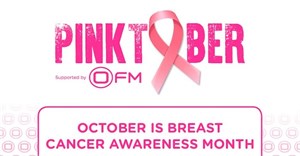Roche cuts the price of cancer drug

Roche is in talks with the health department for wider access to trastuzumab, which it sells as Herceptin in the private sector and Herclone in the state sector. Trastuzumab was for the first time included in the government's essential medicines list in June and is recommended for eligible patients in its new breast cancer strategy, which was published on Friday.
The health department is aiming to provide trastuzumab to 500 patients a year at 14 hospitals around the country.
Roche spokeswoman Aadila Fakier said trastuzumab was not yet widely available to state patients but some healthcare facilities were buying the drug and doing so at a lower price than before. Roche sold trastuzumab to the state at about R10,500 a vial, she said, declining to specify the new price. Unlike tender prices, which are published in the Government Gazette, the prices paid by healthcare facilities that buy drugs on "buy-out" are not in the public domain.
The breast cancer strategy says trastuzumab should be provided to patients with HER2 tumours, at three weekly intervals, for a year. But it contains a caveat, saying it must be affordable and not come at the expense of cutting other healthcare services.
Medical schemes may soon have to pay
Roche holds the patents on Herceptin and Herclone but it may soon face competition from rival Mylan, which has applied to the Medicines Control Council to register its trastuzumab biosimilar.
The Fix the Patent Laws Coalition estimates that a year's treatment with Herceptin costs R465,392 for each patient in the private sector. The high price tag means many medical schemes will not pay for it, but that may change if state sector access improves, according to the Board of Healthcare Funders' head of benefit and risk, Rajesh Patel.
The breast cancer strategy says SA cannot afford to use mammography for routine screening in the state sector and recommends it is reserved for symptomatic and high-risk patients in specialist breast cancer centres. It says women over 40 should receive biannual clinical breast examinations from a healthcare provider.
The department also released a new cervical cancer strategy on Friday that states that all women over the age of 30 years should have three free cervical cancer screening tests at 10-year intervals in the public sector.
Source: Business Day
Source: I-Net Bridge

For more than two decades, I-Net Bridge has been one of South Africa’s preferred electronic providers of innovative solutions, data of the highest calibre, reliable platforms and excellent supporting systems. Our products include workstations, web applications and data feeds packaged with in-depth news and powerful analytical tools empowering clients to make meaningful decisions.
We pride ourselves on our wide variety of in-house skills, encompassing multiple platforms and applications. These skills enable us to not only function as a first class facility, but also design, implement and support all our client needs at a level that confirms I-Net Bridge a leader in its field.
Go to: http://www.inet.co.za














